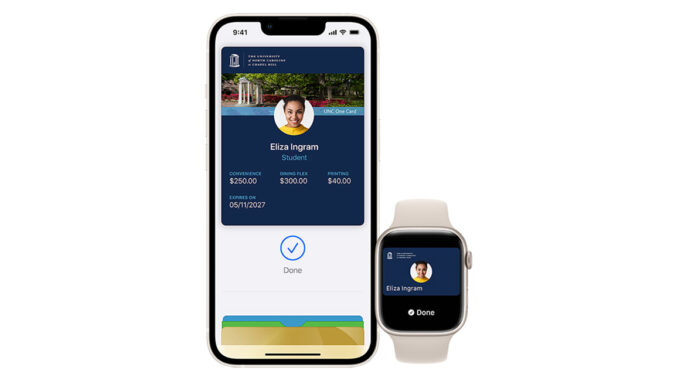
RALEIGH — The North Carolina Court of Appeals issued an order granting a temporary injunction and enjoining the North Carolina State Board of Elections from allowing use of the UNC Chapel Hill Mobile One card, a digital ID, for use in voting.
“The motion for temporary injunction is allowed,” the Sept. 27 order states. “The State Board of Elections is hereby enjoined from accepting the University of North Carolina — Chapel Hill Mobile One Card, or any other “image of a photo ID, either as a photocopy or a photo on a mobile device” that is prohibited by the State Board of Election’s Numbered Memo 2023-03, for the purpose of casting a ballot in the November 2024 general election.”
The order says the stay and injunction will “remain in effect until the disposition of petitioners’ appeal or until further order of this Court.”
The order follows a Court of Appeals panel review on Sept. 26 of the related lawsuit filed by the Republican National Committee (RNC) and North Carolina Republican Party (NCGOP). The order reverses the ruling by Wake County Superior Court Judge Keith Gregory, who had previously denied a request for a temporary restraining order in the matter.
The RNC and NCGOP sued the North Carolina State Board of Elections over the board’s Aug. 20 decision to allow the use of the digital ID for voting. The NCSBE vote was 3-2 down party lines, with the Democratic majority voting in favor. The RNC and NCGOP lawsuit argued that North Carolina law only permits physical, tangible forms of photo ID for voting purposes, not electronic versions.
“When the NC State Board of Elections exceeds their statutory authority, we will use every available option to ensure elections in this state are safe,” wrote NCGOP Chairman Jason Simmons in a post on X following the order. “Today’s Digital ID decision is a win for the people of North Carolina and for the rule of law.”
An affidavit filed in the case by 22-year-old Jeffrey Moore detailed his ability to alter the UNC Chapel Hill Mobile One card using two online apps. He was able to alter the digital ID in about an hour but said in the affidavit that he could likely do it faster now that he knew how.
Moore’s filing says he used two apps: “Superimpose+: Background Eraser” for editing the photo, and “Walletsmith – Wallet creator” to create a new credential with his picture and a fictitious name.
Moore added the modified UNC student electronic ID to his Apple Wallet app on his phone.
Following the Court of Appeals order, Wake County Board of Elections member Gerry Cohen seemed to suggest UNC Chapel Hill voters could be angry “at whoever is responsible.”
Cohen posted about the ruling on X, writing, “at the 2016 primary when NC Voter ID was in effect one election but student IDs weren’t accepted at all, I worked voter protection at Chapel of the Cross (UNC early vote site) and several students came up to me and said ‘I want to vote against whoever is responsible for this.'”
According to the Mobile One card’s photo requirements, the “Photo ID must be a valid U.S. Driver’s License, U.S. State ID, U.S. Military ID or Passport,” all of which are acceptable forms of photo ID that can be used to vote in North Carolina.
“You can add the One Card to both your iPhone and Apple Watch, but only one format of the card (physical or mobile) will be permitted,” the UNC Chapel Hill Mobile One Card website states. “Once a card is added to Apple Wallet, the physical card will no longer work. However, cardholders are encouraged to keep their physical for use as a valid voter ID.”


